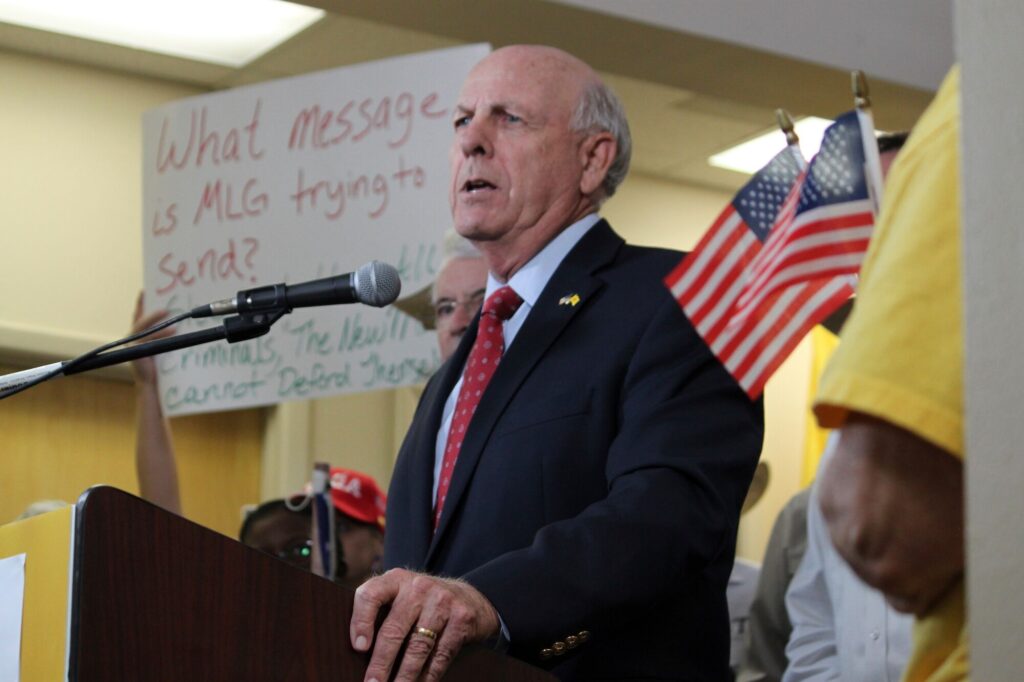Hickenlooper pleads for survival of land and water conservation fund

Gov. John Hickenlooper sent a plea Tuesday to Colorado’s congressional delegation, urging them to push for full funding of the federal Land and Water Conservation Fund (LWCF).
The fund, which relies on federal oil and gas drilling lease revenues from offshore sites rather than tax revenue, was envisioned by President Dwight Eisenhower in the 1950s and became fully funded starting in 1965. Its recommended funding is $900 million per year, although it rarely gets the full amount.
President Donald Trump’s proposed 2019 budget would slash the fund to as low as $8 million per year, down from the $400 million the fund received in the 2017 budget.
> RELATED: Bennet joins bipartisan Senate push to renew conservation fund
Congress allowed the fund to lapse in 2015, with conservative critics complaining that too much of the fund’s money was used on federal rather than local projects. But a compromise was reached to extend the fund another three years. But without congressional reauthorization, the fund will expire on Sept. 30.
In Colorado, more than 1,000 outdoor and recreational projects have been awarded grants from the LWCF. The grants must be leveraged with other dollars, so its impact goes way beyond the $61 million the Centennial State has been awarded over the years. Total funding for the 1,030 projects is estimated by the Colorado Division of Parks and Wildlife at more than $147 million.
In a statement Tuesday, Hickenlooper said the LWCF plays a significant role in preserving Colorado’s recreational and outdoor heritage. “The LWCF has proven vital for serving the increasing need for outdoor recreation opportunities in Colorado,” he said in the statement. “Loss of the LWCF risks dealing a considerable blow to the state’s outdoor recreation industry which depends upon increasing public recreational access to the outdoors.”
Hickenlooper’s letter to all nine members of Colorado’s federal delegation seeks reauthorization as well as full funding for the LWCF.
“It is difficult to imagine a federal program that has been more important to preserving Colorado’s recreational and outdoors heritage than the LWCF,” Hickenlooper wrote. ” Expiration of the fund, Hickenlooper said, would be “a loss to Coloradans and all Americans who love the outdoors.”
Hickenlooper pointed to several recent projects that received LWCF money, including the Montbello Open Space Park which will connect children in Northeast Denver with nature and improved access to Rocky Mountain National Park and White River National Forest.
Investments by the LWCF have contributed significantly to Colorado’s outdoor recreation economy, Hickenlooper told the delegation. “Losing the LWCF would be a considerable blow to this vital sector of our economy which depends on increasing public recreational access to the outdoors.”
Colorado’s U.S. senators – Democrat Michael Bennet and Republican Cory Gardner – are among a dozen bipartisan cosponsors of Senate legislation to renew the LWCF. However, the measure has not gained any additional support in the last 30 days. The bill is awaiting action from a committee on energy and natural resources, of which Gardner is a member.
The House version has support from the three Democrats in Colorado’s House delegation, and in the past 30 days Republican Rep. Mike Coffman of Aurora has also signed on to co-sponsor the bill, bringing the total to 232 members, more than enough to move the bill to the House floor.
However, the bill has been sitting in a House subcommittee on water, power and oceans since last February. That committee is chaired by Rep. Doug Lamborn (R-Colorado Springs).
According to the state division of parks and wildlife, the fund’s biggest impact in Colorado has been in Rep. Scott Tipton’s (R-Cortez) sprawling 3rd Congressional District, covering western and southern Colorado, at $26.5 million for 272 projects, and Republican U.S. Rep. Ken Buck’s (R-Greeley) 4th Congressional District in eastern Colorado, at $29 million for 150 projects.














